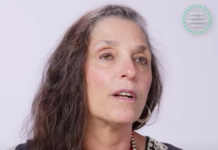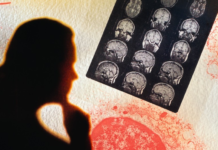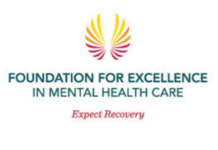Mental Health Industry Should Embrace Choices Beyond Drugs
In this video for NowThis, Yana Jacobs critiques the mental health industry standard of prescribing drugs as the first-line treatment for "mental illness." She emphasizes...
First They Ignore You: Impressions From Today’s Hearing on H.R. 3717
As I walked alone up the stairs to the Rayburn House Office Building this morning to attend the hearing of the Energy and Commerce Subcommittee on Health on H.R. 3717 - the Helping Families in Mental Health Crisis Act - I thought about how I wasn’t truly alone. In spirit with me were all the people who had experienced scary, coercive, and dehumanizing interventions in the name of help. In spirit with me was every mental health provider who went into the field hoping to really make a difference in their communities, but became cynical and discouraged in the face of so many broken systems and broken spirits.
Creatively Managing Voice-Hearing Through Spiritual Writing
I am a psychiatric survivor of over thirty-six years. Since my nervous breakdown in 1978, I have undergone multitudinous experiences ranging from the subtly humiliating to the horrifically debilitating at the hands of incompetent psychiatrists and psychopharmacologists who, in the name of medicine, did more harm than good.
Mental Health Patient Becomes Best Mental Health Nurse
From ABC Australia: Matthew Ball, a mental health nurse with lived experience of hearing voices, psychiatric diagnosis, and hospitalization, was recently named the Australian College...
Watch: “I Hear Voices in My Head, But I’m Fine”
"Eleanor Longden started hearing voices when she was 18. She was drugged and hospitalised, then told she was schizophrenic. A psychiatrist even told her...
Hearing Voices Workshop Comes to Vermont
I recently had the great pleasure of hosting a Hearing Voices workshop with Ron Coleman and Karen Taylor. The response was overwhelmingly positive. Many people described this as one of the best trainings they had ever attended. Ron's message is inherently uplifting - after all this internationally known educator was once a mental patient given a poor prognosis. But in addition, they offered pragmatic suggestions for how to think about voices and talk to someone who is experiencing them.
Exercise Effective for Early Psychosis, Studies Show
A new study out of the University of Manchester found that personalized exercise programs reduced the symptoms for young people suffering from their first episode of psychosis. Researchers also conducted an accompanying qualitative analysis and found that the participants experienced improved mental health, confidence, and a sense of achievement and felt that autonomy and social support were critical to their success.
Rachel Waddingham’s Recovery From Psychiatric Labeling and Unnecessary Treatment
Rachel's recovery from psychiatric labelling and unnecessary treatment from CEP.
When Hearing Voices is a Good Thing
The Atlantic reports on Tanya Luhrmann's recent research, published in the British Journal of Psychiatry "That suggests that the way people pay attention to...
Reading the Bible Through Neuroscience
In this interview for The Atlantic, James Kugel speculates on the minds and experiences of ancient prophets through a neuroscientific lens, exploring how biblical people's sense of...
Life Experience is Key for Certified Peer Support Specialists
From MinnPost: Peer support specialists can play a crucial role in helping people recover from life challenges including addiction, mental health concerns, and homelessness.
"'Certified peer...
“25 Years of Madness and Modernism”: A Review
In this piece for the Centre for Medical Humanities, James Whitehead reflects on the 25th anniversary celebration of the publication of Louis Sass's Madness and Modernism.
"A...
“Hearing Voices: The People Who Say Talking Back is the Only Answer”
Journalist Emma Reynolds profiles Amanda Waegeli, Ron Coleman, Nathan Grixli and Lyn Mahboub about their experiences coming to the Hearing Voices Network (HVN). HVN was established 10 years ago in Australia and provided a support group that encouraged people to listen to their voices rather than trying to block them out. The group now operates in 25 countries.
I Wonder if There is Some Axis II Going on Here? Further Thoughts on...
This blog was prompted by an invitation to do a guest post on the site of one of my favorite bloggers, 1 Boring Old Man. This is my response to the notion that there are certain conditions - Schizophrenia among them - that correspond more directly to biomedical conditions
Pledge Support for Changes in Understanding of Psychosis
From Critical Psychiatry: The International Society of Psychological and Social Approaches to Psychosis (ISPS) has produced a 'Liverpool Declaration' stating that psychosis needs to be...
On “Schizophrenia”
The first time I heard someone labeled schizophrenic I was about 10 years old. A man was talking to himself and appeared to be house-less and perhaps on drugs. My mom, a very good teacher and explainer of things to me, said, “That man is schizophrenic. That means he can't tell the difference between what's inside of himself and what's outside.” In retrospect this seems like a relatively sophisticated and sensitive explanation; Falling in love, hearing music that enters our heart, having children/giving birth, connecting powerfully with another person in a meeting of the minds, feeling empathy, deeply caring about something, experiencing oneness with nature, are all examples of times when the line between inner and outer reality is blurred.
Adderall Blamed for Leap into Tiger’s Den
The mother of a man charged with trespassing for leaping from a monorail into a tiger's den at the Bronx Zoo, where he was...
Eating Oily Fish While Pregnant Could Prevent Schizophrenia
From The Conversation: According to a recent study from Japan, pregnant mice that are deprived of an essential fatty acid, called docosahexaenoic acid (DHA), are...
Voices, Then & Now
As we approach world hearing voices day 2013 Karen and I are in Canada. We have just enjoyed running a preconference workshop for about 100 people in Winnipeg. I am sitting in my room before breakfast writing this piece and as I sit I am thinking back twenty-three years ago; I am in a psych unit in Manchester and I have a new support worker called Lindsay. By then I had been a psych patient for almost ten years and was fast approaching spending the rest of my life in the system. My support worker had convinced me to go to a new group that was starting in Manchester called a hearing voices group.
“Why Are So Many Children on Antipsychotic Drugs?”
“Do they make people less aggressive? Yes, sometimes they do. Will they sedate people? Absolutely. Will they make kids easier to manage? They will,” Robert Whitaker tells Liz Spikol for Philadelphia Magazine. “But I know of no study that shows that medicating these kids long-term will help them grow up and thrive. The developing brain is a very delicate thing. The narrative is that these side effects are mild, and that’s just not true, and that the benefits are well-established, and so often they’re not.”
Voice Hearing as a Dissociative Rather Than Psychotic Phenomenon
Researchers in England review in depth the evidence for voice hearing as dissociation, rather than psychosis, and suggest that voice hearing is a common...
“When the Brain is Under Attack”
The Boston Globe reports on the discovery of a newly recognized neurological disease, anti-NMDA receptor encephalitis. The disease is believed to be caused when the body’s immune system attacks proteins in the brain associated with the communication of neurons.
Alfred Hitchcock Presents: The DSM-5
What does the new DSM-5 have in common with an Alfred Hitchcock mystery? They both use a plot device, a “MacGuffin,” to drive the story. Hitchcock explained a MacGuffin as on the one hand “ridiculous”, “non-existent”, “empty” and inherently without meaning, and at the same time the central point around which the entire story turns. Which narratives, and whose, are served by the "diagnosis MacGuffin”? Are there more socially desirable alternatives to replace this particular plot vehicle?
“The Vacuum of the Mind: A Self-Report on the Phenomenology of Autistic, Obsessive-Compulsive, and...
In this month’s Schizophrenia Bulletin, a person diagnosed with autism, OCD, obsessive-compulsive personality disorder, and major depressive disorder provides a first-hand close reading and description of their own psychiatric experiences.
New Grant Boosts Hearing Voices Approach in USA
From The Foundation for Excellence in Mental Health Care: The Hearing Voices Research and Development Fund has been awarded a $300,000 grant to expand their...


















